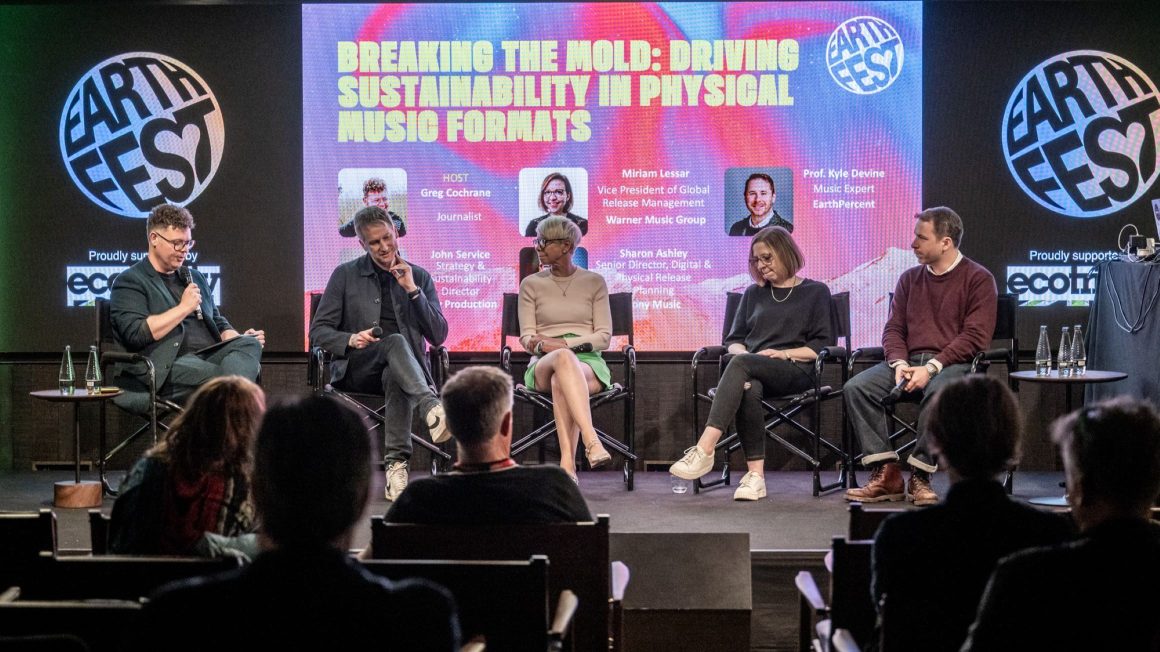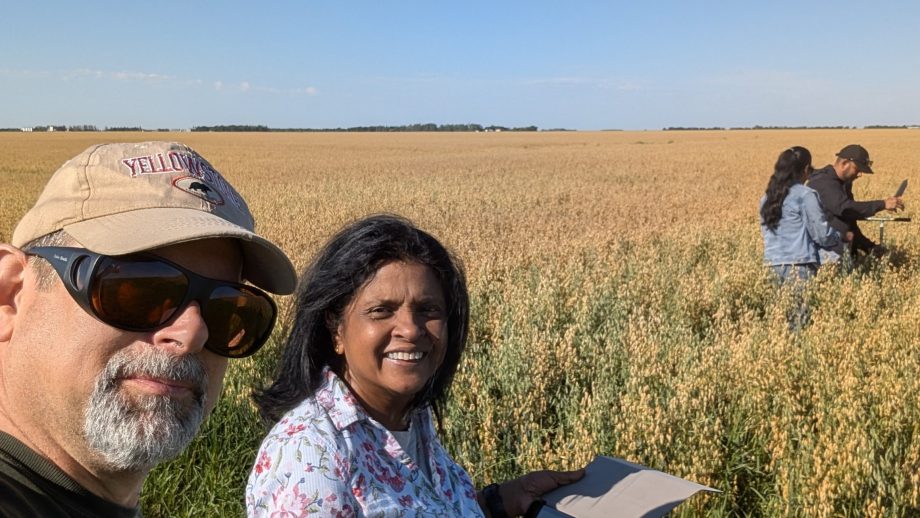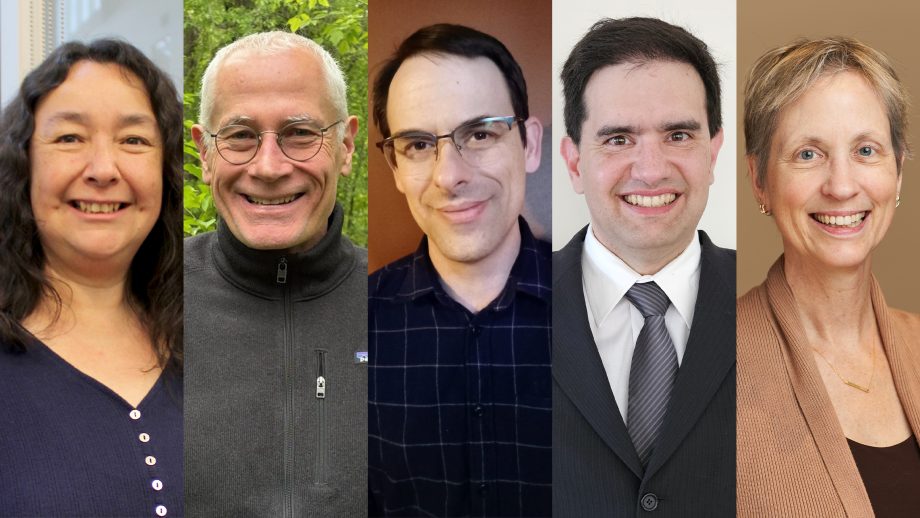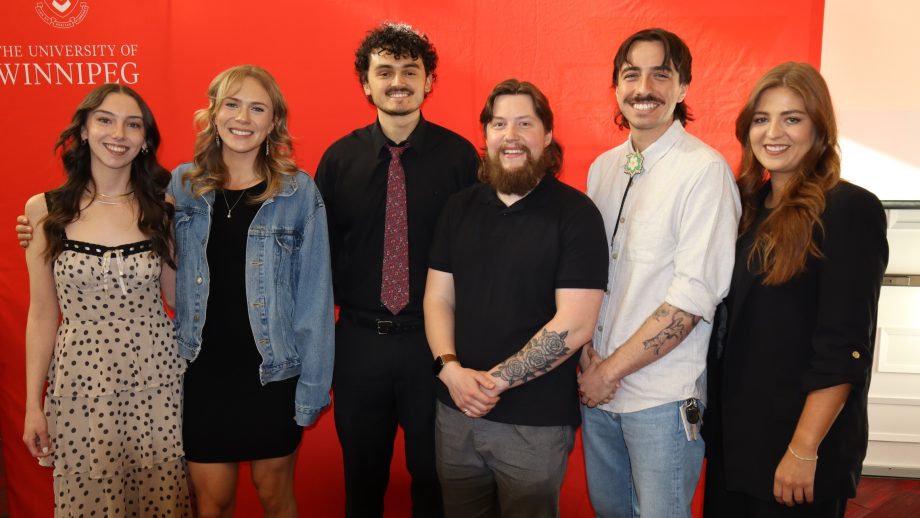A University of Winnipeg Dean and Professor who studies the carbon footprint of the music industry has returned from a special summit in England attended by journalists, activists, record label executives, and rock musicians.
Dr. Kyle Devine, Dean of the Faculty of Graduate Studies and Professor in the Department of Environmental Studies and Sciences, was the lone university academic invited to Earthfest’s first-ever Music Summit at Sony Music UK headquarters in London on June 5.
The one-day gathering was a new component of Earthfest, an annual sustainability festival featuring talks, demonstrations, and workshops.
“There were panels, there were performances, there were showcases,” said Dr. Devine, an expert on how the music industry is navigating the climate crisis.
The purpose of the summit was to take stock of ongoing industry efforts to reduce the carbon emissions associated with the production and consumption of live and recorded music.
“The greening of the music industry has been gaining momentum,” Dr. Devine explained. “In the last five years there’s been an increasingly concerted effort to look at practices and make the industry more environmentally friendly.”
Many of the industry’s early steps were small in scale or patchwork in nature. But now, major record labels are getting on board. Dr. Devine said competitors are now collaborating, and a collective will has coalesced.
“Conversations used to be limited to, how do we recycle vinyl, a petroleum product?” Dr. Devine said. “Now that’s shifted and people are talking about making records out of sugar and supply chain analysis and best practice benchmarks. These are real and positive developments.”
Streaming in the spotlight
Dr. Devine spoke on a panel alongside heads of distribution from major record labels. They discussed the environmental costs of streaming. It’s a topic Dr. Devine has written about extensively. The forthcoming Recomposed: Music, Climate, Crisis, Change (Verso) will explore how the music industry is responding to climate change.
The book is a much-anticipated follow-up to Decomposed: The Political Ecology of Music (MIT Press), an award-winning environmental history of the record industry that got academics, music critics, and industry figures talking when it was published in 2019. The book drew attention to the energy intensiveness of streaming—a less visible part of the industry’s carbon footprint than the petroleum that fuels touring and vinyl production.
The greening of the music industry has been gaining momentum.
Dr. Kyle Devine
“You’d hear a lot that ‘Music digitalized was music dematerialized,’” Dr. Devine said, “but looking at the actual requirements, what the book said was no, recorded music is more taxing on people and the planet now than at any previous point in history.”
Dr. Devine said Recomposed is focused on solutions, and picks up on the conversations sparked by the first book.
“Music has an environmental cost—we know that now—so the question it asks is, what do we do?”
Keynote speakers at Earthfest Music Summit included label executives and industry watchers, but also musicians themselves, including two respected rock drummers, Stewart Copeland of The Police and Philip Selway of Radiohead. Dr. Devine said the participation of working musicians was crucial, because artists often spur industry change.
“They can throw their weight around if they’re at a certain level,” he explained. “They have platforms, they have voices, they can reach people.”
In addition to offering academic expertise, Dr. Devine represented EarthPercent, a music industry climate foundation co-founded by the musician and producer Brian Eno. Dr. Devine serves as EarthPercent’s Green Music Expert, sitting on a committee that vets grant applications and disburses donations.
“The idea is musicians or companies can donate one percent of their profits to EarthPercent,” he explained. “Various expert committees then advertise for grant partners using that money. Those partners include music industry players who want to do things better, but also things far beyond music, like legal and policy changes, energy transition, and nature protections.”
While challenges lie ahead for the industry, Dr. Devine said the summit was encouraging.
“I was getting a lot of updates, a better sense that, ‘Wow, there’s been a lot going on,’ initiatives are getting off the line, and major figures from big labels are involved.”





